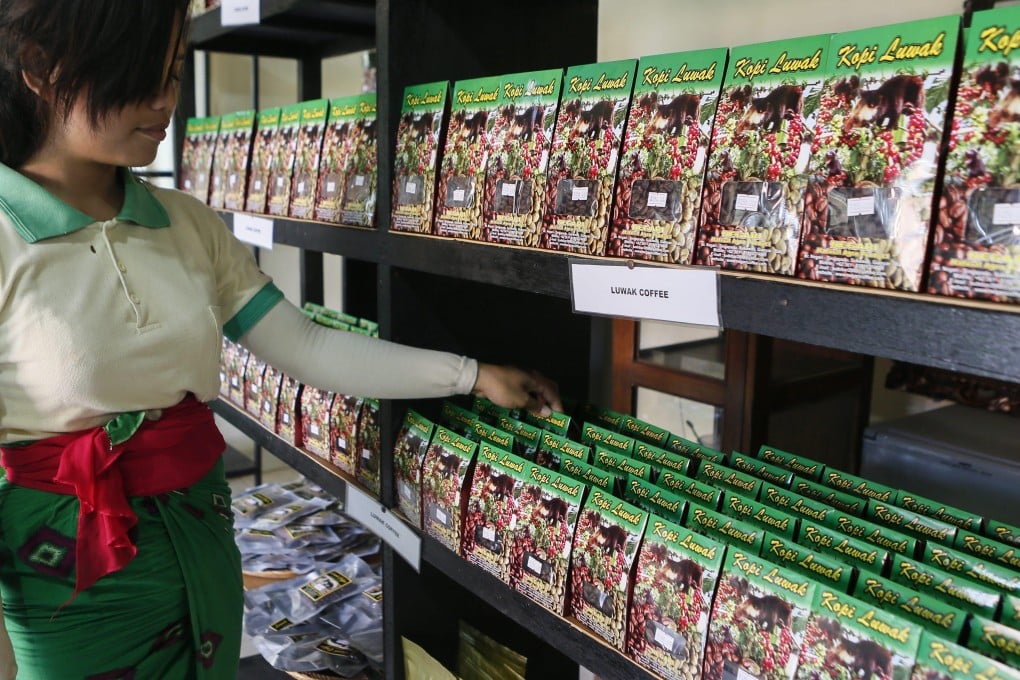Bali tourists warned to avoid civet coffee as animals kept in cages and fed rotten berries
- The People for the Ethical Treatment of Animals said that tourists should be wary of drinking kopi luwak as the beans are collected from civets held captive
- The brew is made by cleaning and roasting partially digested coffee beans excreted by civets

In Bali, opting for beans made from the poop of civets is the most expensive way to take your coffee. Every year, tourists travel to the Indonesian island and drink civet coffee – locally known as kopi luwak – at the more than a dozen cafes and farms listed on Google Maps.
But the People for the Ethical Treatment of Animals, or Peta, said in an investigative video posted on YouTube on March 5 that tourists should be wary of drinking kopi luwak, as the coffee beans are collected from civets kept in wire cages.
The video comprised footage of several civets held in captivity. Jason Baker, the senior vice-president of Peta, told CNBC that the footage was taken at a farm in Catur, a small town 48km (30 miles) north of Ubud that’s popular for trekking in Bali.
In the video, one person could be heard saying the coffee beans are collected from the civet droppings found in the “wild jungle” – but Peta wrote in the video that this isn’t true.
“Deliberately misleading claims about how civet coffee is obtained are rampant in Bali,” the video’s in-text caption read.
One person, whom Peta identified as a kopi luwak peddler, said that tourists don’t know that the civets are held captive.